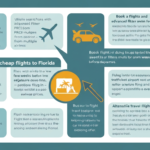https://finanzasdomesticas.com/contratos-de-futuros/ might sound like a big word, but it’s just a special type of agreement. In simple terms, contratos-de-futuros/ are deals where people agree to buy or sell something at a future date, but the price is decided today.
These contracts are used in many markets, like for buying crops or even oil. They help people plan ahead and protect against price changes. Let’s dive in and learn more about how contratos-de-futuros/ work in a way that’s easy to understand!
What Are Contratos-de-Futuros/
Contratos-de-futuros/ are special agreements where people decide today to buy or sell something in the future. These contracts are made to help with planning and to manage risks. For example, if a farmer wants to sell wheat next year, they might use a contrato-de-futuros/ to set the price now.
In a contrato-de-futuros/, both the buyer and seller agree on the price and date. This means they know exactly what will happen and can plan better. It’s like making a promise to do something later but knowing all the details today.
People use contratos-de-futuros/ in different markets, from agriculture to oil. These contracts help businesses avoid surprises in prices. They are a useful tool for planning and budgeting.
How Do Contratos-de-Futuros/ Work
To understand how contratos-de-futuros/ work, imagine you want to buy a toy that costs $10 today but will be $20 in the future. You make a deal to buy it now at the $10 price, even though you’ll get it later. That’s how a contrato-de-futuros/ works.
These contracts specify the price and date for the future transaction. Both sides agree to these terms so that they know exactly what will happen later. This helps avoid problems with price changes.
In real life, contratos-de-futuros/ are used in markets to help businesses and traders manage costs. They make planning easier and can protect against price increases. Knowing the details in advance makes things simpler.
Why Do People Use Contratos-de-Futuros/
People use contratos-de-futuros/ to protect themselves from future price changes. For instance, a coffee shop owner might use a contrato-de-futuros/ to lock in a price for coffee beans. This way, they don’t have to worry if prices go up later.
These contracts help businesses plan their budgets better. When prices are set in advance, it’s easier to manage money and avoid surprises. Using contratos-de-futuros/ can also help people get better deals by planning ahead.
For many businesses, contratos-de-futuros/ are a way to ensure stability. They help keep costs predictable and make financial planning easier. Overall, these contracts offer a way to manage risk and secure prices.
Contratos-de-Futuros/ in Everyday Life
Contratos-de-futuros/ might sound complex, but they are used in everyday life in simple ways. For example, if you sign up for a subscription service that locks in a price for a year, that’s similar to a contrato-de-futuros/.
These agreements help people and businesses manage their finances. When you know what you’ll pay in the future, it’s easier to plan your budget. Contratos-de-futuros/ are useful for both small and large financial decisions.
Even though contratos-de-futuros/ are often used in big markets, their principles apply to daily activities. They make it possible to secure prices and avoid unexpected costs, helping everyone plan better.
The Benefits of Using Contratos-de-Futuros/
Using contratos-de-futuros/ has many benefits. One of the main advantages is that they help manage risk. For example, if you agree to buy a product at a set price in the future, you won’t be affected by price increases.
Another benefit is better planning. When you know the future price, you can budget more accurately. This makes financial planning easier and helps avoid surprises. Contratos-de-futuros/ also provide stability in markets by locking in prices.
Overall, contratos-de-futuros/ offer a way to control costs and plan effectively. They are a valuable tool for managing financial risks and ensuring stability in uncertain markets.
Common Examples of Contratos-de-Futuros/
Contratos-de-futuros/ are used in many different markets. One common example is in agriculture. Farmers often use these contracts to sell their crops at a set price before they are harvested.
Another example is in the oil industry. Companies use contratos-de-futuros/ to buy or sell oil at agreed prices. This helps them manage costs and avoid problems if oil prices change unexpectedly.
These contracts are also used in finance. Investors use contratos-de-futuros/ to speculate on price changes or hedge against risks. Each of these examples shows how contratos-de-futuros/ can be applied in various ways.

Risks Involved with Contratos-de-Futuros/
Contratos-de-futuros/ come with some risks. One risk is that prices might change in unexpected ways. If you agree to a price today and it changes a lot in the future, you might end up paying more or less than planned.
Another risk is related to the other party. If the other person in the contrato-de-futuros/ does not fulfill their part of the deal, it can cause problems. It’s important to trust the other party and make sure the contract is clear.
Despite these risks, contratos-de-futuros/ can still be useful. Understanding the potential issues can help you use these contracts more effectively and avoid problems.
Contratos-de-Futuros/ vs. Other Contracts
Contratos-de-futuros/ are different from other types of contracts. Unlike regular contracts, contratos-de-futuros/ involve agreements for future transactions at today’s prices. This makes them useful for managing future costs.
Regular contracts often deal with current transactions, while contratos-de-futuros/ are about future prices. This means they have a different purpose and offer unique benefits. Understanding these differences helps in choosing the right type of contract.
Both contratos-de-futuros/ and other contracts have their uses. By knowing how they differ, you can make better decisions about which contract is right for your needs.
How to Get Started with Contratos-de-Futuros/
Getting started with contratos-de-futuros/ is not too difficult. First, you need to understand how they work and what they are used for. Learning about the basics can help you make informed decisions.
Next, you should find a reliable partner to make the contrato-de-futuros/ with. This could be a business or an individual who you trust. Make sure all details are clear and agreed upon.
Finally, use contratos-de-futuros/ to your advantage. Whether you are buying or selling, these contracts can help you manage risks and plan for the future. Starting with small contracts can help you get used to how they work.
Important Terms Related to Contratos-de-Futuros/
When dealing with contratos-de-futuros/, it’s important to know some key terms. One term is “strike price,” which is the agreed price for the future transaction. Another term is “expiry date,” the date when the contract ends.
Understanding these terms helps in making the contract work well. They define the details of the agreement and ensure both parties know what to expect. Learning about these terms makes contratos-de-futuros/ easier to understand.
Overall, knowing important terms related to contratos-de-futuros/ helps in making informed decisions. This knowledge ensures that contracts are clear and effective for future transactions.
Contratos-de-Futuros/ in the Global Market
Contratos-de-futuros/ are not just used locally but are also important in the global market. Businesses and traders around the world use these contracts to manage risks and plan for future prices.
In the global market, contratos-de-futuros/ can involve large amounts of money and many different types of goods. They help companies deal with price changes in international trade. Understanding their global use shows their importance in worldwide markets.
These contracts play a big role in making global trade smoother and more predictable. They help manage risks and ensure stability in the international market.
The Future of Contratos-de-Futuros/ Trading
The future of contratos-de-futuros/ trading looks promising. As markets become more complex, these contracts offer a way to manage risks and plan for future prices. Technology is also making it easier to use and understand these contracts.
In the coming years, contratos-de-futuros/ trading may become more common and accessible. New tools and platforms will make it easier for more people to use them. This will help individuals and businesses manage their finances better.
Overall, contratos-de-futuros/ will continue to be a valuable tool in financial planning. Their role in managing risks and planning for the future will remain important as markets evolve.
How Contratos-de-Futuros/ Help Farmers
Contratos-de-futuros/ are really helpful for farmers. When farmers grow crops, they often don’t know what the price will be when it’s time to sell. By using contratos-de-futuros/, they can agree on a price before the crops are harvested.
For example, a farmer might use a contrato-de-futuros/ to sell wheat at a certain price in six months. This means the farmer knows exactly how much they will earn, even if wheat prices go up or down. It helps the farmer plan their finances and manage their income better.
These contracts also protect farmers from price drops. If the price of wheat falls before harvest time, the contrato-de-futuros/ ensures they still get the agreed price. This stability is very important for managing the costs of running a farm.
Overall, contratos-de-futuros/ give farmers peace of mind. They make it easier to budget and avoid surprises in prices. By locking in prices early, farmers can focus more on growing their crops and less on worrying about price changes.
Understanding the Legal Side of Contratos-de-Futuros/
Contratos-de-futuros/ come with legal rules that help ensure everything goes smoothly. These rules make sure that both sides of the contract follow through with their promises. If someone doesn’t stick to the contract, there are legal ways to solve the problem.
One important aspect of contratos-de-futuros/ is that they must be written clearly. The contract needs to specify the exact price and date for the future transaction. This helps avoid confusion and ensures both parties understand what to expect.
Legal experts often help in creating and reviewing contratos-de-futuros/. They ensure that the terms are fair and that the contract meets all legal requirements. This legal support helps make sure the contract is enforceable and can be relied upon.
Understanding the legal side of contratos-de-futuros/ is crucial for anyone using them. It ensures that the agreements are valid and that any disputes can be resolved properly. Having a clear and legally sound contrato-de-futuros/ makes trading more reliable and secure.
The Role of Contratos-de-Futuros/ in Financial Planning
Contratos-de-futuros/ play an important role in financial planning. They help people and businesses manage their budgets by fixing prices for future transactions. This makes it easier to plan expenses and manage money.
For example, a company might use a contrato-de-futuros/ to lock in the cost of raw materials. By knowing the future price, the company can budget more accurately and avoid unexpected costs. This helps in making informed financial decisions and planning for the future.
Individuals also use contratos-de-futuros/ for personal finance. If you’re planning a big purchase, such as a house or a car, a contrato-de-futuros/ can help you secure the price. This makes it easier to save money and plan your finances.
Overall, contratos-de-futuros/ are a useful tool in financial planning. They provide a way to manage future costs and ensure stability in budgets. By using these contracts, people can plan better and avoid financial surprises.

Contratos-de-Futuros/ and Market Volatility
Contratos-de-futuros/ are important for managing market volatility. Market volatility means prices can change quickly and unpredictably. Contratos-de-futuros/ help people and businesses deal with these changes by setting prices in advance.
When the market is volatile, prices can go up and down a lot. By using a contrato-de-futuros/, businesses can lock in a price now, avoiding the impact of future price swings. This helps them manage costs and protect against sudden price changes.
For example, a company that buys oil might use a contrato-de-futuros/ to set the price for future delivery. If oil prices rise suddenly, the company still pays the agreed price. This helps in keeping costs stable and planning budgets effectively.
contratos-de-futuros/ help manage the risks of market volatility. They provide a way to secure prices and avoid the effects of sudden price changes. This makes them a valuable tool for dealing with unpredictable markets.
How to Choose the Right Contrato-de-Futuros/
Choosing the right contrato-de-futuros/ involves a few important steps. First, you need to understand what you need from the contract. Are you buying or selling? What price and date are you looking for? Knowing these details helps in finding the right contract.
Next, consider the terms of the contrato-de-futuros/. Make sure the price and date match what you need. Check that the contract is clear and that both parties agree on the details. This helps avoid misunderstandings and ensures that the contract works as expected.
It’s also a good idea to seek advice from experts. Financial advisors or legal experts can help you understand the contract and make sure it’s a good fit for your needs. They can also help with any questions or concerns you might have.
Overall, choosing the right contrato-de-futuros/ requires careful consideration. By understanding your needs and reviewing the contract terms, you can make sure it meets your requirements. Expert advice can also help in making the best choice.
The Impact of Technology on Contratos-de-Futuros/
Technology is changing how contratos-de-futuros/ are used and managed. With new tools and platforms, it’s easier to create, track, and execute these contracts. Technology makes the process faster and more efficient.
One impact of technology is that it allows for electronic contracts. Instead of paper contracts, many contratos-de-futuros/ are now managed online. This makes it easier to handle transactions and keep records.
Technology also helps with tracking and managing contratos-de-futuros/. Software tools can monitor prices and update contracts automatically. This helps businesses and individuals stay on top of their agreements and manage risks more effectively.
Overall, technology is making contratos-de-futuros/ more accessible and easier to use. It improves efficiency and helps manage contracts in a modern way. Embracing these technological advancements can benefit anyone using contratos-de-futuros/.
Contratos-de-Futuros/ and Global Trade
Contratos-de-futuros/ play a big role in global trade. They help businesses around the world manage risks and plan for future prices. By using contratos-de-futuros/, companies can secure prices and avoid surprises in international markets.
In global trade, contratos-de-futuros/ are used for many different goods. From agricultural products to energy resources, these contracts help manage price changes and ensure stable trading conditions. They are important for companies that deal with international markets.
For example, an oil company in one country might use a contrato-de-futuros/ to buy oil from another country at a set price. This helps both sides manage their costs and plan better. It also ensures that trade agreements are fair and predictable.
Overall, contratos-de-futuros/ support global trade by providing a way to manage risks and secure prices. They help companies trade smoothly and handle the challenges of international markets. Using these contracts effectively can enhance global business operations.
The Future Trends in Contratos-de-Futuros/ Trading
The future of contratos-de-futuros/ trading is expected to see several new trends. One trend is the increased use of digital platforms for trading. Online tools and apps are making it easier to manage contratos-de-futuros/ and conduct transactions.
Another trend is the growing use of contratos-de-futuros/ in new markets. As more industries recognize the benefits of these contracts, they are starting to use them for different types of goods and services. This expands the range of applications for contratos-de-futuros/.
Technology will also continue to play a big role. Advances in technology will make contratos-de-futuros/ trading more efficient and accessible. This includes better tracking tools and automated systems that help manage contracts.
The future of contratos-de-futuros/ trading looks promising with new trends and technologies. These developments will make trading easier and open up new opportunities. Keeping up with these trends can help individuals and businesses use contratos-de-futuros/ effectively.
Conclusion
Contratos-de-futuros/ are like making promises about prices for the future. They help people and businesses plan better by setting prices ahead of time. This way, everyone knows what to expect and can avoid surprises. They’re super helpful for managing money and keeping things stable.
In the end, contratos-de-futuros/ are a great tool for handling future costs and risks. Whether you’re a farmer, a business owner, or just planning for a big purchase, these contracts make it easier to manage your budget. They help make sure everything goes smoothly, even when prices change.




